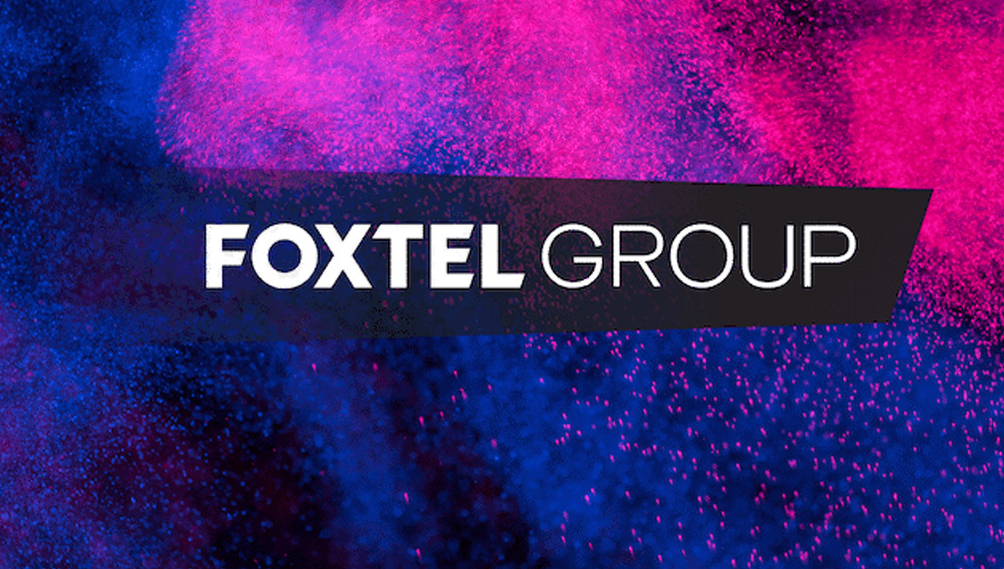The noise surrounding a potential Foxtel Group transaction has quickly been turned into a media story about ‘Foxtel for sale’.
News Corp chief executive Robert Thomson revealed an approach from a third party this morning as News Corp released its full-year results. Thomson is great with language (and a real loss to journalism). Below we detail his comments to questions this morning and look at the list of potential buyers for News Corp’s subscription TV business.
See also: News Corp profits – FY 2024 second best year on record, reviewing potential Foxtel transaction
‘We had no imminent intent to sell Foxtel’
“We are confident in the Company’s long-term prospects and are continuing to review our portfolio with a focus on maximising returns for shareholders,” Thomson said.
“That review has coincided recently with third-party interest in a potential transaction involving the Foxtel Group, which has been positively transformed in recent years with record numbers of streaming subscribers, low broadcast churn and rising broadcasting a streaming ARPU.
“We had no imminent intent to sell Foxtel, but are reviewing potential strategic and financial options for the business with our advisors and engaging with third parties in light of that external interest.”
“Third-party interest” could mean a sale, but it is hardly confirmation of a bid or even a negotiation for a sale. “Imminent intent” is an interesting choice of phrase though. But Thomson needs to be taken on his word that News was not looking to sell Foxtel, now, in the absence of any evidence to the contrary.
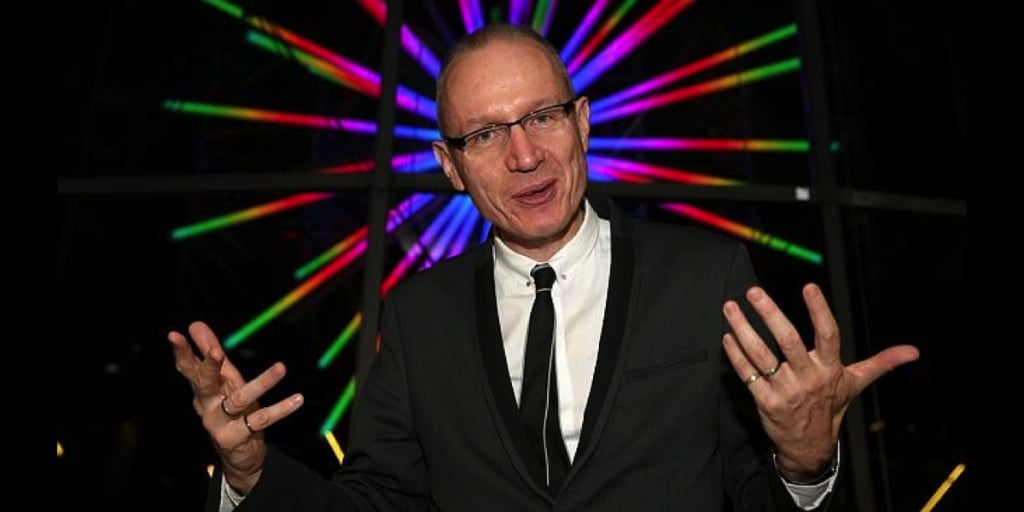
News Corp’s Robert Thomson
Why reveal the approach now?
The size and attractiveness of any proposal put to News Corp might have meant they had no option but to outline the approach to shareholders. Some more cynical observers think News Corp might have had an unattractive approach and are going public to gauge other interest from the market.
Patrick Delany on Foxtel’s future
On a call to Mediaweek this morning, Foxtel Group chief executive Patrick Delany was asked if Foxtel was for sale and if it will be sold.
“One of the things that we have done well is leave the [Foxtel Group] shareholders who own the company to decide what they are going to do with their ownership and we get on with running the company,” said Delany.
“That’s what happened during all the speculation about Foxtel being floated. Now it is also a matter for us to keep our heads down and continue to trade as we have good momentum with a good asset.”
When asked if he had been involved in any of the detail regarding an overture from a third party, Delany said he would make no comment. “It’s a matter for the shareholders and management is not going to be distracted.”
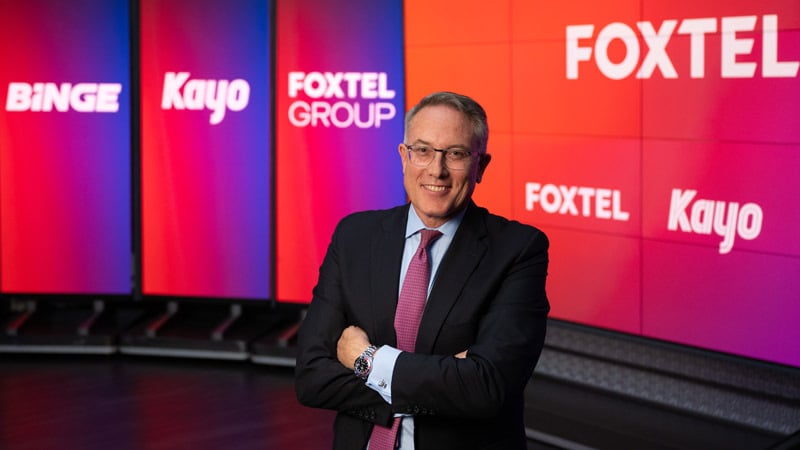
Foxtel Group’s Patrick Delany
What News Corp told persistent analysts
In the Q&A session with analysts on the earnings call, four of the eight questions were regarding Foxtel and the possible divestment.
In answers to some of those questions, Thomson said:
“We have had a significant overture which we are assessing. We have full faith in the potential of Foxtel and the talented team at Foxtel who have fashioned a world-class viewing experience. They created Kayo which is the best sports streaming platform globally, hence the interest in emulating its success in the US.
“On behalf of shareholders we have to evaluate any interest knowing we are ourselves fervent Foxtel fans. The streaming broadcast ARPU business is surging in the most recent quarter was 6% higher than a year earlier.
“Stay tuned, not indefinitely, not perpetually, not ad infinitum.”
In an answer to another analyst’s question, Thomson said: “We want to ensure [that for] our cherished [Foxtel] colleagues, the external interest should be seen as a clear vote of confidence in what they have achieved. The company’s performance has caught the discerning eye of others, who not only see a great company, but in these turbulent troubled times, an expanding market like Australia.”
One questioner asked about the continued review of News Corp’s different segments. “The process will not continue indefinitely, nor perpetually. The recent effort now coincides with interest in Foxtel. That process has to play out in a full and fair manner. There will be a certain amount of tension on that in coming weeks and coming days.”

Who might buy or merge with Foxtel Group?
It is unlikely that shareholders Foxtel and Telstra would consider breaking up the business as content rights are bought by the group. There had been speculation though that Warner Bros Discovery (WBD) has been interested in acquiring Binge ahead of the launch of Max in Australia in 2025. At present, Binge has a contract for some WBD content including HBO.
Telcos getting further into content business?
Telstra had reportedly been in talks with Foxtel previously about increasing its stake in Foxtel Group. One rumour goes after that failed to happen, it went off and invested in Fetch instead. A Foxtel and Fetch merger under Telstra ownership would strengthen the telco’s offer significantly across Australia. Just imaging the bundling options and how it could potentially hurt Optus.
Speaking of which, Optus is being considered as a potential buyer of Foxtel by some. EFTM founder Trevor Long even went so far this morning to name Optus as the most likely potential acquirer.
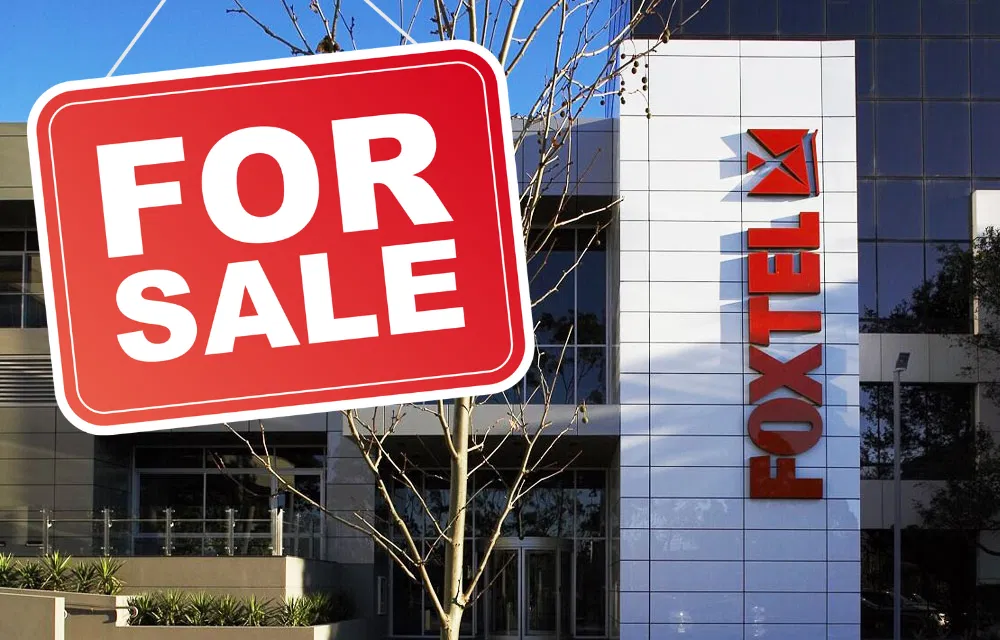
Other local potential predators
Nine Entertainment Co is perhaps the most prominent candidate in Australia which would benefit from a merger with Foxtel. That would probably mean a merger of Stan and the Foxtel Group. That might help with the ever-increasing costs of content, but is it enough to make a merger stack up? It could be a confusing consumer offering too with Foxtel, Stan, Binge, Kayo (with the addition of the Stan Sport properties – albeit some ones that Foxtel passed on), 9Now, and Nine.
Nine is the most likely local if you count Seven West Media out of the equation. But does Kerry Stokes have the appetite for a deal of that size when he is currently working hard at getting Seven into fighting shape for the challenges it will face? Seven, of course, is without a subscriber element in the business model. Bolting on Foxtel would certainly fix that.
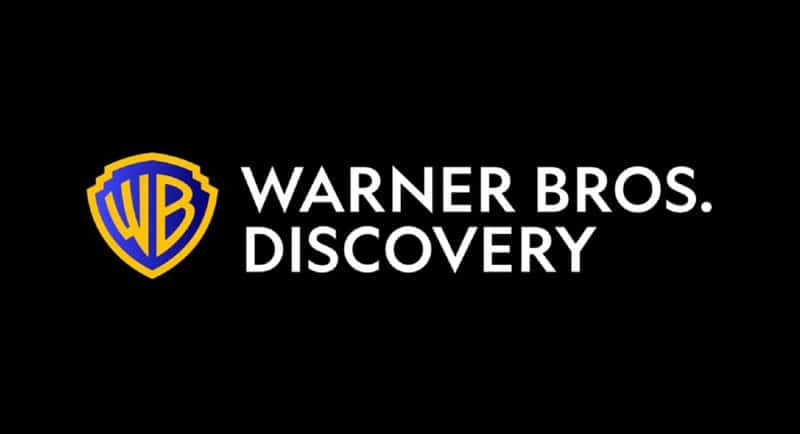
International partners
Thomson hinted the proposal for Foxtel came from overseas when he said there was interest in “an expanding market like Australia”.
You could probably eliminate Netflix, Disney, NBCU, and Paramount+ for various reasons. Netflix doesn’t need a complicated one-market partnership, the same goes for Disney and NBCU, which are also on journeys to streamline their own subscription services. At Paramount, the old and incoming owner are much more likely to be sellers than buyers of media assets.
The most likely international partner/acquirer would be Warner Bros Discovery. The challenges it faces means it is unlikely to be in acquisition mode. A partnership, though, could see it launch Max in this market within Foxtel Group where the Binge offering is rebranded as Max.
Max is now available in 65 markets globally, so getting into an important market like Australia must still be on the road map. But how best to do that? HBO, Max, and Discovery+ lost a combined US$107m in Q2 calendar 2024. Foxtel Group generated EBITDA of $74m in FY2024. In its earnings notes last week, WBD noted it had repaid $1.8bn in debt in Q2, and had an undrawn $6bn revolving credit facility.
